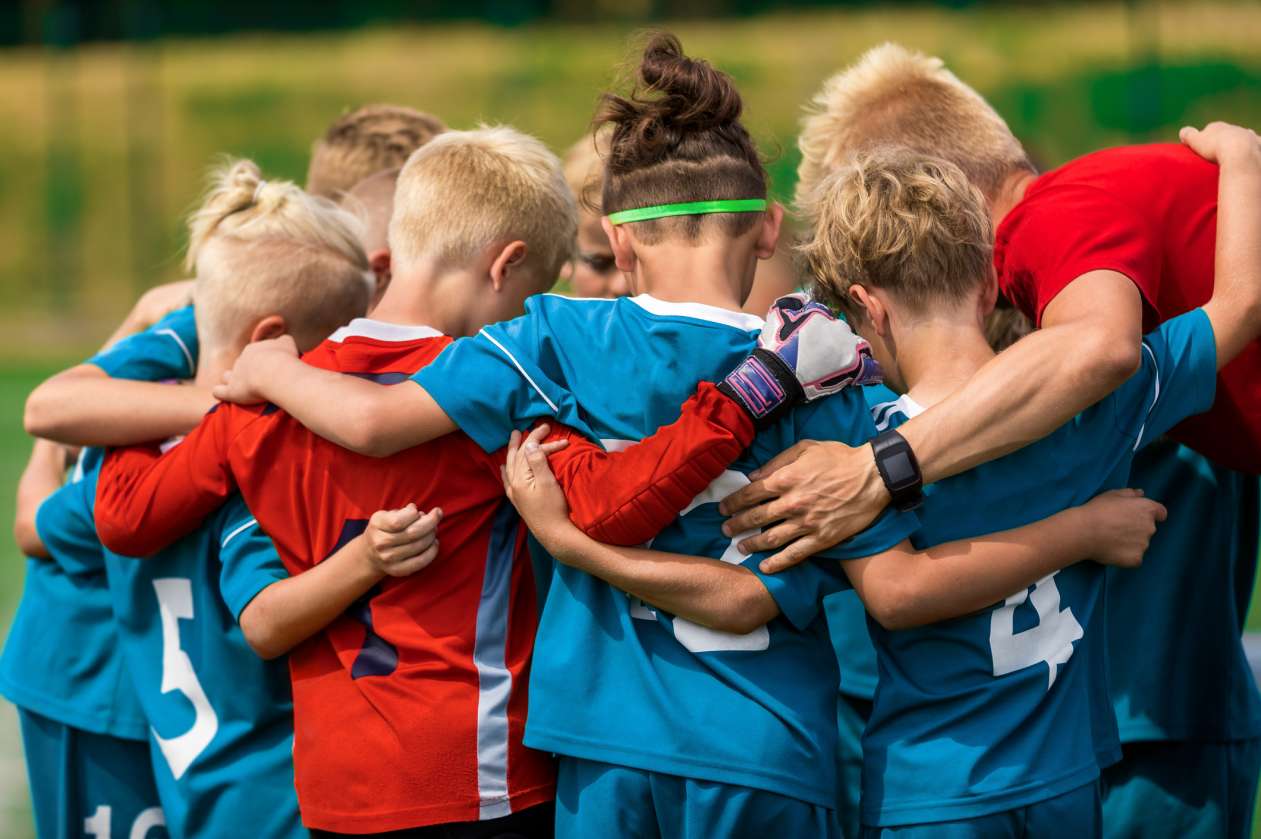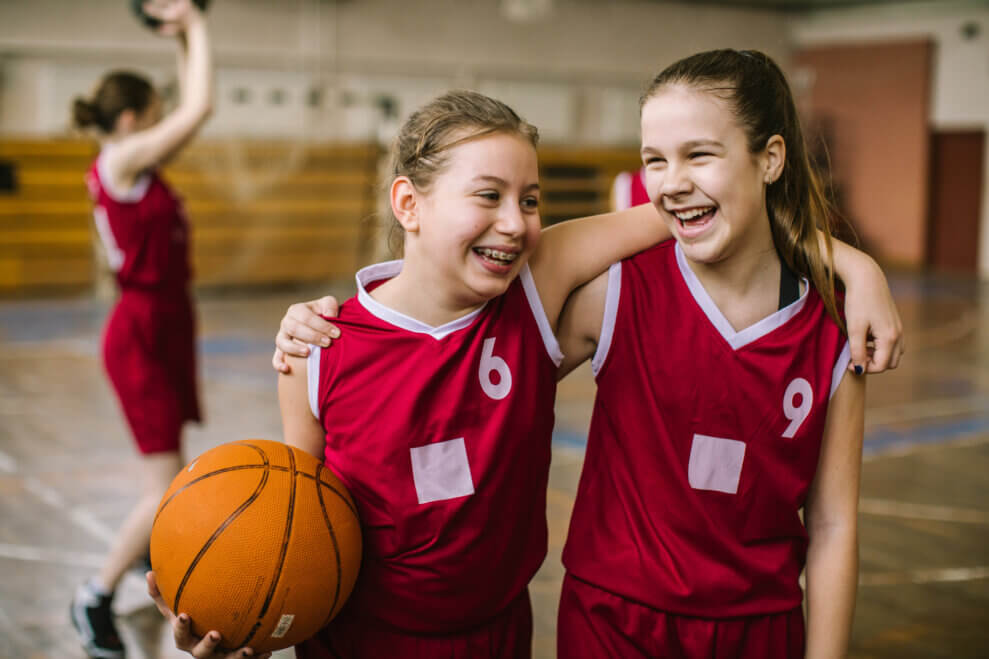Benefits of Team Sports for Kids: The Complete Guide to Physical, Social, and Emotional Development
Benefits of Team Sports for Kids: The Complete Guide to Physical, Social, and Emotional Development

In an era dominated by digital screens and sedentary lifestyles, the benefits of team sports for kids have never been more crucial for healthy child development. Team sports offer a unique combination of physical activity, social interaction, and life skill development that cannot be replicated through individual activities or classroom learning alone. Research consistently demonstrates that children who participate in team sports experience enhanced physical fitness, improved social skills, better academic performance, and greater emotional resilience.
The impact of team sports extends far beyond the playing field, shaping character, building confidence, and creating foundational life skills that serve children well into adulthood. From learning to work collaboratively toward common goals to developing persistence in the face of challenges, team sports provide invaluable lessons that prepare young people for success in all areas of life.
This comprehensive guide explores the multifaceted benefits of team sports for children, offering parents, educators, and coaches evidence-based insights into how organized sports participation contributes to holistic child development. Whether you're considering enrolling your child in their first team sport or seeking to understand the deeper value of athletic participation, this guide provides essential knowledge for making informed decisions about youth sports involvement.
Quick Benefits Overview
Team sports provide children with physical fitness development, enhanced social skills, improved academic performance, better emotional regulation, and valuable life lessons in teamwork, leadership, and perseverance. These benefits create a strong foundation for lifelong health and success.
Table of Contents
- • Physical Development Benefits
- • Social Skills and Relationship Building
- • Emotional and Psychological Benefits
- • Academic and Cognitive Benefits
- • Character Development and Life Skills
- • Age-Specific Benefits and Considerations
- • Choosing the Right Team Sport
- • Maximizing the Benefits
Physical Development Benefits of Team Sports
The physical benefits of team sports for kids form the foundation of healthy development, providing essential opportunities for children to build strength, coordination, and lifelong fitness habits. Unlike solitary physical activities, team sports combine cardiovascular exercise with skill development, creating comprehensive physical development opportunities.

Cardiovascular Health and Endurance
Team sports naturally incorporate sustained physical activity that strengthens the cardiovascular system and builds endurance. Children engaged in regular team sports activities develop stronger hearts, improved lung capacity, and better overall cardiovascular health that serves them throughout life.
- Heart Health: Regular aerobic activity during team sports strengthens the heart muscle and improves circulation
- Endurance Building: Sustained activity periods during practice and games gradually increase stamina and energy levels
- Blood Pressure Regulation: Physical activity helps maintain healthy blood pressure levels from an early age
- Cholesterol Management: Active children typically maintain healthier cholesterol levels and better metabolic function
Motor Skills and Coordination Development
Team sports provide diverse movement opportunities that enhance both gross and fine motor skills, contributing to better coordination, balance, and spatial awareness.
Gross Motor Skills Enhancement:
- Running and Agility: Multiple directional movements improve speed, agility, and reaction time
- Jumping and Landing: Activities like basketball and volleyball develop leg strength and proprioception
- Throwing and Catching: Hand-eye coordination improves through repetitive ball-handling activities
- Balance and Stability: Dynamic movements during gameplay enhance overall balance and core strength
Fine Motor Skills Development:
- Precise ball control in sports like soccer and basketball
- Hand dexterity improvement through equipment handling
- Finger strength development from gripping and catching
- Bilateral coordination through complex movement patterns
Strength and Muscle Development
Team sports activities naturally build functional strength through body-weight resistance and dynamic movements, creating balanced muscle development without the need for formal weight training.
Research Highlight
A study published in the Journal of Pediatric Exercise Science found that children participating in team sports showed 23% greater bone density and 18% higher muscle mass compared to sedentary peers, establishing crucial foundations for lifelong bone health.
Obesity Prevention and Weight Management
With childhood obesity rates continuing to rise, team sports provide an engaging, sustainable approach to maintaining healthy weight and body composition throughout childhood and adolescence.
- Caloric Expenditure: Team sports burn significant calories while providing enjoyable physical activity
- Metabolic Benefits: Regular activity improves metabolism and helps regulate appetite hormones
- Body Composition: Increased muscle mass and decreased body fat percentage improve overall health
- Lifestyle Habits: Active children are more likely to maintain healthy eating and exercise habits into adulthood
Social Skills and Relationship Building Through Team Sports
Perhaps no other childhood activity provides such rich opportunities for social development as team sports. The collaborative nature of team athletics creates natural environments for children to develop essential interpersonal skills that serve them throughout life.
Communication Skills Development
Team sports require constant communication, providing children with practical opportunities to develop both verbal and non-verbal communication skills in dynamic, real-world situations.
Verbal Communication Enhancement:
- Clear Expression: Players learn to communicate quickly and clearly during fast-paced game situations
- Active Listening: Understanding teammates' and coaches' instructions develops listening skills
- Constructive Feedback: Learning to give and receive feedback helps develop diplomatic communication
- Conflict Resolution: Addressing disagreements and misunderstandings builds negotiation skills
Non-Verbal Communication Skills:
- Reading body language and facial expressions during gameplay
- Using gestures and signals to communicate during competition
- Developing awareness of personal space and physical boundaries
- Understanding the impact of posture and demeanor on team morale
Cooperation and Teamwork Abilities
The fundamental requirement of working together toward common goals teaches children invaluable lessons about cooperation, compromise, and collective achievement.
Essential Teamwork Skills Developed:
- Shared Responsibility: Understanding that individual actions affect team outcomes
- Role Acceptance: Learning to excel within assigned positions while supporting overall team strategy
- Compromise: Finding solutions that benefit the team rather than individual preferences
- Trust Building: Developing confidence in teammates' abilities and reliability
- Collective Problem-Solving: Working together to overcome challenges and obstacles
Leadership Development Opportunities
Team sports naturally create leadership opportunities, allowing children to develop confidence, decision-making abilities, and the skills necessary to guide and motivate others.
Types of Leadership Roles in Team Sports:
- Team Captain: Official leadership positions that teach responsibility and representation
- Peer Mentor: Helping newer or younger players develop skills and confidence
- Positive Influencer: Modeling good sportsmanship and work ethic for teammates
- Strategic Contributor: Offering ideas and solutions during team discussions
Friendship Formation and Social Bonding
The shared experiences, challenges, and victories of team sports create strong bonds between children, often resulting in lasting friendships and expanded social networks.

- Shared Experiences: Common challenges and achievements create strong emotional connections
- Mutual Support: Learning to encourage and help teammates builds empathy and caring relationships
- Social Network Expansion: Meeting children from different schools and backgrounds broadens social circles
- Inclusion Skills: Learning to welcome and integrate new team members develops inclusivity
Emotional and Psychological Benefits
The emotional and psychological benefits of team sports extend far beyond physical activity, providing crucial support for mental health, emotional regulation, and psychological resilience during critical developmental years.
Self-Confidence and Self-Esteem Building
Team sports provide multiple avenues for children to experience success, overcome challenges, and develop a positive sense of self that translates into confidence in all areas of life.
Confidence-Building Mechanisms in Team Sports:
- Skill Mastery: Progressive skill development creates tangible evidence of improvement and capability
- Team Contribution: Recognizing how individual efforts contribute to team success builds self-worth
- Performance Growth: Tracking improvement over time reinforces belief in personal capability
- Peer Recognition: Positive feedback from teammates and coaches validates effort and achievement
Stress Management and Emotional Regulation
Team sports teach children healthy ways to manage stress, process emotions, and maintain emotional balance under pressure.
Emotional Regulation Skills Developed:
- Pressure Management: Learning to perform effectively despite competitive pressure and expectations
- Frustration Tolerance: Developing patience when facing setbacks or difficult situations
- Excitement Control: Learning to channel positive emotions productively
- Recovery Skills: Bouncing back from mistakes or disappointing performances
Mental Health Benefits
Research from the American Academy of Pediatrics shows that children participating in team sports have 25% lower rates of anxiety and depression, demonstrating the significant mental health benefits of regular athletic participation and social connection.
Resilience and Perseverance Development
Team sports naturally present challenges, setbacks, and obstacles that teach children to persist through difficulties and develop mental toughness that serves them throughout life.
Resilience-Building Experiences:
- Overcoming Losses: Learning that setbacks are temporary and provide learning opportunities
- Skill Challenges: Persisting through difficult skill acquisition processes
- Injury Recovery: Developing patience and determination during rehabilitation periods
- Performance Slumps: Working through periods of poor performance with continued effort
Goal Setting and Achievement
Team sports provide natural frameworks for setting, pursuing, and achieving goals, teaching children valuable lessons about planning, effort, and persistence.
- Individual Goals: Personal skill development and performance improvement targets
- Team Goals: Collective objectives that require coordinated effort and commitment
- Short-term Milestones: Immediate objectives that provide regular motivation and feedback
- Long-term Vision: Season or multi-year goals that teach sustained commitment
Academic and Cognitive Benefits of Team Sports
Contrary to concerns about sports taking time away from academics, research consistently shows that team sports participation enhances academic performance and cognitive development through improved executive function, time management skills, and enhanced brain development.
Academic Performance Enhancement
Students who participate in team sports typically demonstrate better academic performance across multiple measures, including grades, test scores, and graduation rates.
Academic Benefits Research Findings:
- Grade Point Average: Student-athletes typically maintain higher GPAs than non-participating peers
- Standardized Testing: Regular sports participation correlates with improved test performance
- Graduation Rates: Student-athletes have significantly higher high school graduation rates
- College Attendance: Sports participants are more likely to pursue higher education
Executive Function Development
Team sports require complex cognitive processes that strengthen executive function skills essential for academic success and life management.
Executive Function Skills Enhanced:
- Working Memory: Remembering plays, strategies, and instructions during competition
- Cognitive Flexibility: Adapting to changing game situations and opponent strategies
- Inhibitory Control: Managing impulses and following rules under pressure
- Planning and Organization: Preparing for games and managing equipment and schedules
Time Management and Organization Skills
Balancing sports participation with academic responsibilities teaches children essential time management and organizational skills that benefit them throughout life.
Time Management Skills Developed:
- Priority Setting: Learning to balance competing demands and responsibilities
- Schedule Management: Coordinating practice, games, and academic commitments
- Efficiency Development: Completing tasks more effectively to accommodate all activities
- Planning Skills: Anticipating needs and preparing in advance for various commitments
Attention and Focus Improvement
The concentration required during team sports practices and competitions translates into improved attention and focus in academic settings and other life areas.
- Sustained Attention: Maintaining focus during lengthy practices and games
- Selective Attention: Filtering relevant information while ignoring distractions
- Divided Attention: Managing multiple information sources simultaneously
- Task Switching: Moving efficiently between different types of cognitive demands
Character Development and Life Skills Through Team Sports
Team sports serve as powerful vehicles for character development, teaching fundamental values and life skills that shape children into responsible, ethical, and contributing members of society.
Sportsmanship and Ethical Behavior
Organized team sports provide structured environments for learning and practicing good sportsmanship, fair play, and ethical decision-making under pressure.
Core Sportsmanship Values:
- Respect for Opponents: Learning to compete fiercely while maintaining respect for competitors
- Fair Play: Following rules and competing with integrity regardless of the stakes
- Gracious Victory: Celebrating success while remaining humble and respectful
- Dignified Loss: Accepting defeat with grace and using it as motivation for improvement
Discipline and Work Ethic Development
Team sports require consistent practice, dedication, and effort, teaching children the value of discipline and hard work in achieving goals.
Discipline Components in Team Sports:
- Regular Practice: Committing to consistent training regardless of mood or preference
- Skill Development: Investing time and eff